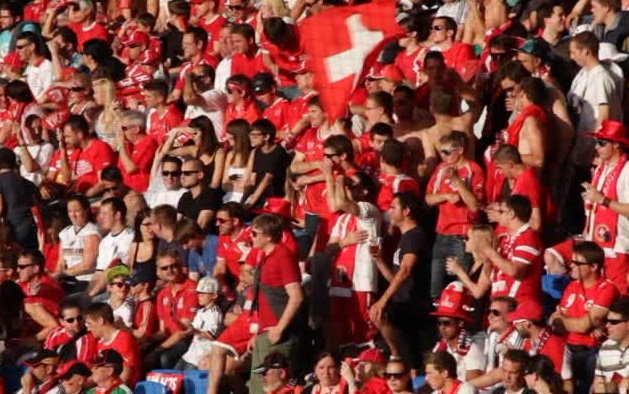Swiss economy thanks for sporting events

Switzerland's KOF Economic Institute downgraded its growth projection for this year because of weak performance in the first half.
In the Autumn Economic Forecast, released Thursday, the institute lowered growth outlook for 2017 to 0.8 percent from 1.3 percent. The think tank said prospects for GDP growth were much gloomier than it had appeared in June.
Over the next two years, the economy will gain momentum buoyed up by sound global economy, said KOF. GDP growth forecast for 2018 was revised to 2.2 percent from 2.1 percent.
There are a range of factors influencing national economic productivity, but sporting events have been highlighted for the first time by experts gazing into their crystal ball.
The 45 international sporting bodies based in Switzerland add more than CHF1 billion ($1 billion) to Swiss coffers every year, according to a research paper in 2015.
Seco estimates that the sports and entertainment industries contribute 2% to Switzerland’s economic output every year. Major sporting events can add between 0.2% to 0.3% to GDP growth, or reduce output by the same margin in years that do not have any major sporting events. This is not a huge margin, but big enough to attract the attention of economists.
“In the coming year [2018], the Winter Olympics will be held in South Korea and the football World Cup in Russia, which will have a special effect on Swiss economic performance,” noted KOF in its GDP forecast released on Thursday.
For 2019, the agency expects 1.9 percent expansion.
Recovery of the labor market and price increases were slow. Following a weak 0.3 percent this year, full time equivalent employment will rise by 0.8 percent in 2018 and 2019, KOF said.
The KOF forecast consumer prices to increase slightly in the next years, by 0.4 percent for 2017 and 2018 and by 0.5 percent for 2019. According to KOF, long-term interest rates will indeed slowly rise from next year, but the short-term interest rate might only increase if the corresponding euro interest rate is raised by the European Central Bank.

